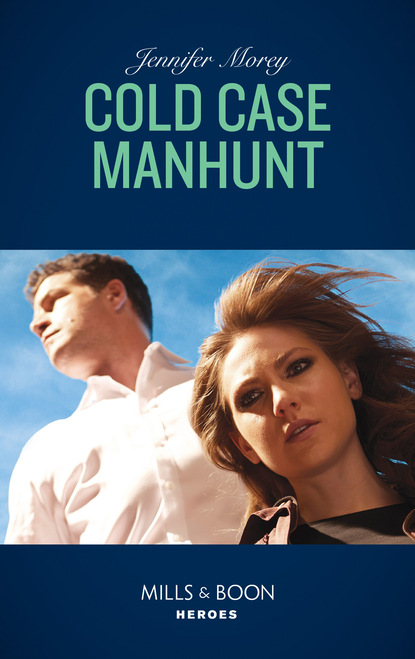
Полная версия
Cavanaugh Or Death
His was not the face of a man who had been won over, Moira couldn’t help noticing.
“I say that I don’t even know who the hell you are.”
“Well, that’s easy enough to fix.” She put her hand out. “I’m Detective Moira Cavanaugh, robbery division.”
He made no effort to take her hand. Instead he repeated her name. “Cavanaugh.”
Moira dropped her hand. She knew adversity when she saw it. “One of the many.”
She attempted to read his expression and found it utterly impossible. It was like trying to guess at the thoughts of a glass of water. Was he one of the ones on the force who outright resented her because of her name? She would like to believe that if he was, something in his eyes would give his feelings away. Disdain. Annoyance. Something.
But he didn’t flinch. Didn’t look down his nose at her. Didn’t reel off his list of imagined Cavanaugh offenses.
All he’d done was repeat her name.
So she tried again. “So, what do you say?”
He appeared unmoved. “I say that there’s probably nothing to investigate.”
“How can you be sure?” she asked. Then she qualified her question, aware that what she’d say would probably get to him. “Unless, of course, you’re the one who disturbed the grave and those two characters in black surprised you at it.”
She watched the man’s face as she delivered her last guess. But there was no telltale look to give him away.
Damn but he was a hard nut to crack.
“Anyone ever tell you that you have a wild imagination?” he asked her.
Well, at least she’d gotten a reaction out of him, Moira thought. “If cops didn’t have wild imaginations, half the crimes wouldn’t be solved. Thinking outside the box is what does it.”
“There’s thinking outside the box and then there’s thinking outside the whole house,” he countered.
It was easy to see which he thought she was guilty of.
“You still haven’t given me an answer,” she pointed out, crossing her fingers as she asked, “Want to partner up for this?”
“No,” he replied flatly.
What Moira couldn’t possibly know was that the last thing he wanted was a partner. He’d lost two, not to mention both his parents, and at this point, he felt that bad luck always followed in his wake, striking down anyone he interacted with. He and everyone else would be better off if he just remained a loner, the way he was.
The man on the staircase had aroused her curiosity to a higher level, but even so, Moira knew she couldn’t force him to be her partner. Nor could she get him to answer all the questions that were, even now, popping up and multiplying in her head.
“Why?” she asked. “Tell me. Please.” Getting answers would have to be done with finesse, but only if she could get this man to talk to her on a regular basis—which she could, but only if they partnered up.
The old saying about leading a horse to water but not being able to make him drink ran through her head.
“My answer is just no,” he replied.
Now what?
Moira took a conscious, figurative step back and shrugged. “Your loss, Detective...?” She let her voice trail off, waiting for him to fill in a name.
Instead he replied, “That is a matter of opinion.”
He hadn’t responded the way she’d hoped he would. The man just didn’t know how to play the game, she thought, frustrated.
Or maybe he did but just refused to.
Moira took one more stab at it. “Oh c’mon, you’ve got to have a name.”
“Yes, I do.”
For just the tiniest split second she entertained the idea of justifiable homicide. Then, taking a deep breath, she asked, “So what is it?”
If nothing else, the woman had succeeded in making him curious as to how far she was going to go with this. “There’s no reason for you to know.”
“Detective,” she said, a slight edge working its way into her voice, “there’re just the two of us in this stairwell and accidents can happen at any place, any time.”
Disciplined restraint kept him from laughing at her. “I’m no expert, but my guess is that I outweigh you by a good fifty pounds.”
She was one step below him and from this vantage point, he towered over her. Moira Cavanaugh didn’t give an inch as a fire came into her eyes. “The first rule of martial arts is using your opponent’s weight against them.”
To Moira’s surprise, she heard a dry laugh escape the detective’s lips.
“You really are determined to get your own way, aren’t you?” he asked her. “Let me guess, you’re an only child who was always indulged.”
Boy, did he have the wrong number. “I’m one of seven who had to fight her way to the top each and every time. Nobody indulged anybody in my family,” she informed him proudly.
There was no point in his telling her that she wasn’t the only one trained in martial arts—his parents had signed him up for classes to help build his confidence because he had been small for his age and had been picked on in school. What he’d learned at that very young age had helped him hold more than his own in life.
He regarded her in prolonged silence, then, just as she appeared ready to walk away, said, “I’ll talk to my captain myself.”
Stunned—she’d been ready to give up on the man for now—Moira wanted to make sure she understood what he was telling her. “Are you telling me that you’re willing to partner up with me?”
He didn’t answer her directly. “You said your lieutenant gave you forty-eight hours.”
“Yes.”
He shrugged. “I guess I can put up with anything for forty-eight hours—as long as that’s the real time limit,” he qualified, looking at her as if he could easily tell if she was lying.
She met his scrutiny head-on. “That’s the real time limit he gave me.”
He caught the last three words she’d added on and wondered if that was the loophole she was giving herself. Not that it really mattered. He’d been thinking about looking into the disturbed grave himself, just in his off-hours. What this woman proposed gave him official capacity to do it, which made the investigation that much easier to undertake.
Besides, she did have a point. Two sets of eyes—even devious ones as she appeared to have—were better than just one set.
And, whatever they found—or didn’t find as the case might well be—this partnership was only for forty-eight hours.
“Okay, I’m in,” he told her.
Since this man had turned out to be a human version of Mount Everest, her victory was almost heady. “That’s great! There’s only one more thing,” she added as if in afterthought.
Davis was already beginning to regret his words. “What?” he asked her warily.
“What do I call you?” Moira asked. He still hadn’t given her his name.
“As little as possible.”
Compared to this man, Malloy was starting to seem like a veritable pussycat. “I still need to call you something.”
He wasn’t hung up on rank, labels or names. He shrugged indifferently. “Pick whatever you like.”
Moira sighed. “Don’t make this difficult—I have a sister working here who can make computers sit up and beg at will. If I give her a basic description of you, she can get me a name to pin to it in under an hour. It would be a waste of her time and the department’s resources, but if that’s the way you want to play it, then that’s the way it’ll have to be played.”
Davis had a feeling she wasn’t bluffing—which he found both irritating and somewhat intriguing at the same time. He supposed, in the absolute sense, he rather liked the fact that she was feisty as hell and didn’t give up easily.
In a more practical sense, it would probably be the factor that would make him want to get his hands around her throat and squeeze—most likely in the not too distant future.
But, to forestall that eventuality for at least a little while, he decided to answer her question. “It’s Davis.”
“Ah, progress.” He didn’t miss the touch of sarcasm in her voice. “As in first name, or last?” she asked.
Rather than specify, he just said his whole name. “Davis Gilroy.”
Moira smiled at him and although he told himself that it didn’t matter either way, the woman did have a rather warm, attractive smile.
“Pleased to meet you, Detective Davis Gilroy.” She put out her hand again and this time, to avoid another potential clash, he shook it. “You’ll be working with me as part of the Robbery Division,” she informed him. “Until we find out otherwise, this case is going to be worked as a grave robbery.”
He looked at her, surprised. “You’re kidding.”
Just how had she managed to talk her superior into that? As far as he knew, there hadn’t been a single reported incident of a grave robbery in all of Aurora’s history.
He had his doubts that this was what it was, but right now he had no other explanation for it, either.
“Frequently and with aplomb,” she replied to his response. “But I’m afraid I’m not kidding this time, Gilroy.”
It was a shame that he didn’t have a seat belt to fasten, Davis caught himself thinking, because he had a very strong feeling he was in for a very bumpy ride.
Chapter 4
Davis assumed that since he’d agreed to this short-lived partnership, the woman who had waylaid him on the stairs would now step aside and allow him to pass.
But she remained right where she was, still blocking his way to the next floor.
“So who will I be talking to, Gilroy?” she asked.
She’d managed to catch him off guard—again—even though he did his best not to show it. “You mean right now?”
She noted the slight shift in his jaw muscles. Why had her question surprised him? “No time like the present. We don’t exactly have the luxury of time on our side.”
Moira realized that there were a lot of things about this detective she didn’t know. “What department are you with?”
“Major Crimes,” Davis answered. “But I thought we already settled that part. I told you I’d talk to the captain about this.”
At least, he had assumed that she’d agreed with him when he’d told her that he could talk to his captain about investigating the case. He was starting to think that assumption wasn’t a wise course when it came to Moira Cavanaugh.
Moira waved away the detective’s words. “I can sell this better than you can,” she told him. “I got my lieutenant’s okay to investigate and that wasn’t the easiest thing to do. Since he said yes, I figure he’d want me to use whatever resources I needed in order to bring this case to a swift close.”
Davis was starting to get an uneasy feeling about this. He wasn’t a rules-and-regulations kind of man, but neither did he appreciate an all-out rebel, either. He liked operating under the radar whenever possible. That wasn’t accomplished by pairing up with a rebel, no matter how short the duration of that coupling might be.
“And you see me as a resource?” he questioned.
“It’s a hunch,” she told the detective matter-of-factly. “The Cavanaughs are really big on hunches.”
This was just for forty-eight hours, he reminded himself. How bad could things get in forty-eight hours? And, who knew, maybe working together they’d stumble across something important.
“Then I guess we’d better turn around,” he told her. “Major Crimes is on the sixth floor.”
Moira looked up the length of the stairwell. “That’s three and a half flights up.”
Davis managed to keep the unexpected note of amusement he felt out of his voice. “That a problem, Cavanaugh?”
He was challenging her. She would have much rather ridden the elevator, but if he expected her to back off then he would be sorely disappointed.
“No, it’s not a problem. Lead the way,” Moira told him.
Turning sharply on the stairs, he began to lead the way to the sixth floor and Major Crimes.
Moira was determined to keep up with him. After all, she ran every morning just to keep in shape. But there was something very different about running in more or less a straight line compared to quickly climbing up the stairs at a speed Detective Gilroy had deliberately assumed.
She had stamina, but he had the advantage of longer legs. Plus she had the feeling that Gilroy did this sort of thing on a regular basis. Did that mean he was too impatient to wait for the sluggish elevator?
Impatience was often seen as a flaw by many and it gave her hope that the man she’d elected to partner up with wasn’t as much of a self-contained robot as he pretended to be.
Wanting to ask the detective a question, Moira saved her energy—and her breath—until they reached the sixth floor. Once out of the stairwell and into the corridor, she reinitiated the conversation, convinced that if she didn’t, Gilroy would be more than happy to remain silent until he was forced to speak.
She glanced down at his hand before beginning. There was no wedding ring on his third finger, no jewelry at all. Granted that not every married man wore a wedding ring, but she had a feeling that in Gilroy’s case it was because he had no reason to wear one. She highly doubted that any reasonable woman would have willingly resigned herself to a life dedicated to speaking as little as possible, like a Franciscan monk who’d taken a vow of silence.
Silence had never been her thing. Questions fairly burst out of her mouth on a regular basis. Now was no exception.
“What were you doing at the cemetery so early in the morning, anyway?” she asked, addressing her question to his back since he was still walking ahead of her.
Davis came to a dead stop.
She wasn’t prepared for the detective to stop walking so abruptly and she couldn’t prevent herself from slamming right up against his broad, hard back.
Davis swung around and glared at her. “I want to make something very clear, Cavanaugh.” He all but growled at her.
Moira put up her hand to stop his flow of words for a second. “You might have to wait until the stars stop swirling around my head,” she quipped.
If she meant the remark to loosen him up a little, it didn’t. Gilroy didn’t crack a smile or even seem to hear her.
“I’ll help you investigate whatever’s going on at the cemetery, but I’m not going to continue being on the receiving end of your idea of Twenty Questions,” he snapped.
“How about if we both play?” she suggested with a wide smile. “You answer my questions and I’ll answer yours.” It seemed only fair to her.
“I don’t have any questions,” he informed her tersely. The less he knew about her, the easier it would be to walk away when the forty-eight hours were finally up.
Moira stared at him. “You’re serious?” she asked incredulously. Had she stumbled across the one man in the state who had absolutely no curiosity?
The detective’s expression remained immobile. “Totally.”
She just couldn’t get herself to believe him. “You have no questions for me?”
“None,” he replied flatly.
Moira shook her head in complete disbelief. He really was a robot.
“Then you’d be the first,” she told him.
She glanced down the hall and saw the open door that had Major Crimes written across the opaque glass in black block letters. “This must be the place,” she declared cheerfully. Moira braced herself inwardly. Time to beard the lion in his den. “What did you say your captain’s name was?”
“I didn’t.”
Just when she assumed he was leaving it up to her to find out, Gilroy said, “Ryan. His name is Captain Ryan.”
She nodded, taking the information in. Walking inside the squad room, she immediately noted that the layout was the same as it was on the third floor. And, like her lieutenant, the superior officer here had a small, glass-enclosed space—whimsically called an office—to call his own.
From the look of it, Captain Ryan was currently in, and he was on the phone.
“Give me ten minutes,” she told Davis.
He gave her a skeptical look as she started to walk toward the other end of the room. “You don’t want me in there with you?”
“I wouldn’t dream of intruding on your space, Gilroy. Wait here,” she told him, nodding at the squad room. “If I find myself needing you for backup, I’ll wave at you,” she told him just before she proceeded to quickly stride toward the captain’s office.
Unlike Lieutenant Carver, the man who oversaw Major Crimes had his door open despite the fact that he was still on the phone.
It was like watching an accident waiting to happen, Davis thought, perched on the corner of his desk as he looked across the room and observed her.
He fully expected to hear Ryan’s voice come booming across the office once the almost annoyingly perky blonde began to state her case to ask for him on loan for the surreal purpose of looking into a case of possible grave robbery.
But five, then ten minutes went by and the walls did not shake, nor did Ryan’s door rattle.
Davis continued to watch his temporary partner in mounting fascination.
Twelve minutes after she entered Ryan’s inner sanctum, she came out again, an even wider smile—if possible—on her lips.
“Well?” he asked her somewhat skeptically once she reached him.
“Well, you’ve got a very nice captain,” she told him, a glint of mischief in her diamond-blue eyes. “Oh, and you’re mine for the next forty-eight hours,” she added as if that bit of information amounted to just an afterthought instead of the crux of her visit.
Mike Manetti, one of the oldest detectives in the Major Crimes squad—and some felt way overdue to embrace retirement—grinned broadly at him as he and his very temporary partner passed by his less than tidy desk.
“Lucky so-and-so,” Manetti quipped, keeping his assessment clean because of the woman with the notoriously taciturn detective.
Moira smiled at the white-haired, older detective. “I doubt he thinks so,” she said as if confiding in Manetti.
“Then Gilroy’s a slower learner than I gave him credit for,” Manetti told her with a pronounced wink. “Make the most of this, boy. Make the most of this,” Manetti advised, raising his voice so that it followed both of them out into the hall.
Davis deliberately ignored what Manetti had just said. Instead, he thought of his captain and the cheerful expression on the other man’s face.
“What the hell did you say to Ryan?” Davis asked.
He’d been fairly convinced that the captain, in the final analysis, would turn down her request, which would have admittedly put him back to square one, investigating whatever was going on at the cemetery alone. All in all, that was not exactly an unwelcome scenario even though he had already admitted to her that two heads were usually better than one.
“That my lieutenant would appreciate his cooperation in lending out one of his best detectives for this rather unique and hush-hush investigation into some unorthodox dealings at St. Joseph’s Cemetery. I mentioned that some of Aurora’s most prominent citizens had loved ones who were buried there and that they wanted this looked into and taken care of quickly and quietly.” And then that damnable grin of hers returned to momentarily sidetrack his attention. “Oh, and I might have also mentioned that my great-uncle sent his best.”
Davis looked at her suspiciously. Here it was; the crux of it. “Great-uncle?”
Moira didn’t even try to suppress the smile that spread across her face. “Yes. Brian Cavanaugh. He’s the Chief of—”
“Ds, yes, I know,” he all but snapped, saving her the trouble of making what he assumed was an announcement. His suspicions heightened. “I thought that you Cavanaughs made this big deal about climbing up through the ranks strictly on your own merits without relying on the Cavanaugh name or connections.”
“We do,” she informed him openly and surprisingly artlessly.
She was totally blowing his mind. Didn’t she hear the contradiction?
“Then what was that all about?” he asked, nodding back in the general direction of his captain’s office.
“That was using leverage to get you on the case. I’m already on it, remember?” she replied innocently.
“Okay.” He didn’t really accept that, but for now, he let it drop. “And what makes you think I’m one of Ryan’s ‘best’ detectives?” he asked, using the same term she had used earlier. Did she think she was endearing herself with this baseless flattery?
“You’d have to be,” she pointed out without an iota of guile. “With that wounded-bear attitude of yours, if you weren’t one of his best, you would have gotten yourself tossed out on your ear a long time ago.” She flashed a quick, spasmodic smile at him, adding, “That’s called deductive reasoning.”
His eyes narrowed as he glared at her. “That’s called hot air,” Davis pointed out.
“Potato, potato,” she countered. “By the way,” she told him, completely devoid of fanfare or ego, “I’m primary on this.” It was best to lay down the ground rules right from the start.
Moira fully expected the detective to balk at that and was surprised when he merely shrugged.
“Figured you would be,” he commented.
Moira congratulated herself on containing her surprise. “Oh, and why’s that?”
“You brought the case to me, not the other way around.”
“I’ve got a hunch you don’t bring anything to anybody,” she couldn’t help saying. The man definitely wasn’t one of those kids whose report card read, “Works and plays well with others.”
Still, she had to admit that he intrigued her. Maybe even more than just a little.
Gilroy studied her for a prolonged moment and she had absolutely no idea what was going on in the detective’s head. She really hoped that this wasn’t going to be a regular thing while they worked together. Moira hated being in the dark about anything, especially when it came to her partner. Warner wasn’t a bundle of joy, but he was very predictable and that, in turn, made her feel confident.
“Maybe we will work together well, after all,” he exhorted.
That could have knocked her over with a feather. It was official. Detective Davis Gilroy was entirely unpredictable.
Clearing her throat, Moira moved on.
“Okay, first order of business, we take the elevator down. I get enough exercise first thing every morning jogging around this city for an hour.”
“Every morning?” he questioned, making it sound as if he found her claim suspect.
“That’s what I said.”
“Why?”
She gave him the same answer she gave herself every morning. “It wakes me up.”
“Getting out of bed should be able to do that for you,” he said drily.
“You’d think so, wouldn’t you?” she quipped, her remark indicating that it clearly didn’t.
With that, she led the way to the far end of the hall where the elevator was located. She pressed for it, hoping that it would show up before Gilroy decided to take the stairs again. She wasn’t altogether certain the man would wait for her by the precinct’s rear doors if he got there first.
Though she had been the one to talk him into joining forces with her, she had no idea what to expect from this tall, handsome walking clam.
The next moment she made a mental note to ask Valri to look into his background and give her a thumbnail sketch. Maybe if she had that, she’d be a little more prepared when it came to what to expect from him.
She had a very strong feeling that even after they spent some time on the job together, Gilroy wasn’t the type to fill in the blanks unless he was absolutely forced to. And while she did like her share of surprises, she also liked to know what she was getting herself into.
Her instincts told her that Gilroy was a good cop and a damn fine detective—what she’d told him about her reasoning was true—but that still didn’t tell her enough about Gilroy the man, other than that he was an only child—and that was something she’d uncovered on her own. Most of all, she wanted to know how far she could trust him, and if he had her back.
“You want to drive?” she asked him as they got into the elevator.
He looked at her before answering.
She was beginning to think that carefully analyzing the person he was talking to was a thing with him and that he never spoke just off the cuff.












